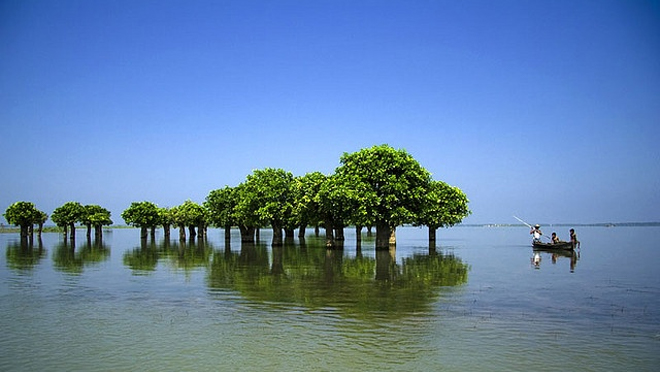Bangladesh ranks 4th among world’s most nature-connected nations, study finds
Bangladesh ranks 4th among world’s most nature-connected nations, study finds

Bangladesh has emerged as one of the world’s most nature-connected nations, ranking fourth globally in a new study examining how people relate to the natural world. The research, published in the journal Ambio, surveyed 57,000 people across 61 countries to understand how social, economic, cultural, and environmental factors shape people’s relationship with nature.
According to the study reported by The Guardian, Nepal tops the global list, followed by Iran, South Africa, Bangladesh, and Nigeria. Among South Asian nations, Bangladesh ranks just behind Nepal, far ahead of larger neighbours such as India and Pakistan, which placed significantly lower in the index.
The research, led by Professor Miles Richardson of the University of Derby in collaboration with Austrian researchers, highlights Bangladesh’s deep spiritual and cultural relationship with nature as a key factor behind its strong performance. The study found that societies with higher levels of spirituality and faith tend to exhibit greater emotional and psychological connection to the natural world.
“Spiritual and communal values appear to play a major role in how people feel part of the living world,” Richardson explained. “Countries like Bangladesh and Nepal, where religion and traditional values remain central to daily life, demonstrate a far stronger sense of unity with nature.”
The concept of nature connectedness measures how closely individuals feel related to other living beings and ecosystems. People with higher levels of nature connection tend to report better mental wellbeing and are more likely to engage in environmentally friendly behaviours.
In contrast, the study found that higher income levels, urbanisation, and greater internet use were associated with weaker connections to nature. This may explain why highly industrialised and urbanised countries such as the United Kingdom, Germany, and Japan ranked near the bottom of the list.
Bangladesh’s rural heritage and community-based lifestyle continue to play an important role in maintaining people’s bond with the natural world. Despite rapid urban growth, many Bangladeshis remain closely tied to rivers, forests, and agricultural landscapes that define the nation’s cultural and economic identity.
The study’s authors suggest that countries with high nature connection, such as Bangladesh and Nepal, could offer valuable lessons to more industrialised nations on integrating nature into everyday life. They argue that preserving traditional and spiritual relationships with the environment may be as important as adopting modern sustainability measures.
As Bangladesh continues its urban and economic transformation, the challenge, according to experts, will be maintaining this deep-rooted sense of harmony with nature while embracing modern development.


